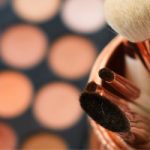In a world where first impressions matter, the art of makeup holds a powerful allure. Makeup artists wield their brushes like magic wands, transforming faces into canvases of beauty and self-expression. If you’ve ever dreamt of becoming one of these enchanting creators, India offers a rich tapestry of opportunities in the field of makeup artistry.
But before you embark on this glamorous journey, it’s crucial to choose the right path and course that suits your aspirations. In this blog, we will delve into the best makeup artist courses in India, unraveling their durations, eligibility requirements, and the exciting career prospects they unlock. By the time you finish reading, you’ll have a clear roadmap for your makeup artistry career and a deeper understanding of the courses that can help you achieve your dreams. So, let’s explore the world of makeup artistry, brush by brush, shade by shade, and discover the beauty of this profession in India.
Table of content
Why Become a Makeup Artist
Desired skills required to be a Makeup Artist
How to Choose the Best Makeup Artist Course
Types of Makeup Artist Courses
Popular Makeup Artist Courses
What is Taught in Makeup Artist Courses
Career Scope
Why Become a Makeup Artist?
Becoming a makeup artist is a rewarding and fulfilling career choice for several compelling reasons. Makeup is a form of art, and as a makeup artist, you have the opportunity to express your creativity daily. You can experiment with different colors, textures, and styles to create unique and stunning looks. Your canvas is the human face, and each client presents a new opportunity for artistic expression. Makeup has the power to enhance a person’s natural beauty and boost their self-esteem. As a makeup artist, you can make people feel more confident and help them look their best for special occasions, photoshoots, or everyday life.
Makeup trends and techniques are ever evolving. This career keeps you on your toes as you continually learn and adapt to stay current with the latest styles and products. This ensures that your work remains exciting and fresh. The makeup industry offers a wide range of career opportunities. You can specialize in bridal makeup, fashion and editorial makeup, special effects makeup for film and TV, theater makeup, or even work in the beauty industry as a brand ambassador, product developer, or makeup educator. Becoming a makeup artist offers the opportunity to combine your artistic talents with the ability to make people feel their best. It’s a versatile, rewarding, and dynamic career that can lead to a fulfilling and successful future. Whether you’re passionate about art, beauty, or both, makeup artistry provides a platform for you to shine.
Desired skills required to be a Makeup Artist
Becoming a successful makeup artist requires a combination of technical skills, creativity, and interpersonal abilities.
Here are the desired skills and qualities needed to excel in this profession: Artistic Creativity: Makeup artistry is, at its core, a form of art. A makeup artist should have a strong sense of creativity and the ability to envision and create unique looks that enhance a client’s features.
Skin Knowledge: A deep understanding of different skin types, tones, and textures is crucial. This knowledge helps in selecting the right products and techniques for each client.
Color Theory: Understanding color theory is essential. Makeup artists must know how to mix and match colors to create harmonious and flattering looks. This includes knowledge of undertones and complementary colors.
Communication Skills: Effective communication is key to understanding a client’s preferences and needs. Makeup artists should be able to listen and interpret a client’s vision while providing professional guidance.
Client Relations: Building strong client relationships is crucial for repeat business and referrals. Good interpersonal skills and the ability to make clients feel comfortable are essential.
Time Management: Being able to manage time efficiently is important, especially when working with multiple clients for events like weddings or photoshoots.
How to Choose the Best Makeup Artist Course?
Choosing the best makeup course requires a thoughtful assessment of your career goals, budget, and learning preferences. Begin by defining your specific interests within the makeup industry, such as bridal, fashion, or special effects makeup. Look for accredited courses with a comprehensive curriculum that aligns with your chosen niche, featuring hands-on training, experienced instructors, and practical exposure. Consider factors like location, cost, and the availability of post-course support, and read reviews and testimonials to gauge the course’s quality and effectiveness. In the end, selecting the ideal
makeup artist course involves a balance of your aspirations, budget constraints, and the course’s reputation and offerings.
Types of Makeup Artist Courses
Makeup artist courses come in a variety of types to cater to different levels of expertise and interests within the makeup industry. Here are some common types of makeup artist courses:
Basic Makeup Courses: These introductory courses are ideal for beginners. They cover the fundamentals of makeup application, including skin preparation, color theory, and basic techniques. Basic courses often require no prior experience and provide a foundation for further specialization.
Diploma in Makeup Artistry: A diploma course typically spans a few months and provides a more comprehensive education in makeup. It covers a range of makeup styles and techniques, making it suitable for those who want to work as a general makeup artist.
Advanced Makeup Courses: These courses are designed for makeup artists looking to enhance their skills. They delve deeper into specialized areas, such as bridal makeup, fashion and editorial makeup, or theater makeup.
Special Effects Makeup Courses: Special effects makeup is used in the film, television, and theater industries to create realistic injuries, prosthetics, and character transformations. These courses focus on the art of special effects.
Online Makeup Courses: Many makeup artist courses are now offered online, providing flexibility for students who cannot attend in-person classes. These courses often include video tutorials, assignments, and virtual support.
Airbrush Makeup Courses: Airbrush makeup is a technique that uses an airbrush gun for a flawless and long-lasting finish. These courses teach the use of airbrush equipment and application techniques.
Bridal Makeup Courses: Bridal makeup is a popular specialization. These courses focus on the skills and techniques required to create stunning bridal looks and are often in high demand.
Fashion and Editorial Makeup Courses: Ideal for those interested in the world of fashion and photography, these courses teach how to create avant-garde and creative makeup looks for photoshoots, runway shows, and editorial spreads.
Workshops and Masterclasses: Short-term workshops and masterclasses offer concentrated learning experiences on specific techniques or trends. They are often taught by renowned makeup artists and are suitable for both beginners and professionals looking to upgrade their skills.
Certification Courses: These courses are designed to help students obtain a professional makeup artist certification, often recognized by the makeup industry. They typically cover a broad range of topics and may include practical assessments.
Popular Makeup Artist Courses
- VLCC Institute
- AAFT online
- Pearl Academy
- Shahnaz Husain Beauty School
- Lakme Academy
- Jawed Habib Academy
- Bharati Taneja’s ALPS Beauty Academy
- Christine Valmy International Academy of Beauty
- Fatmu Academy
- LTA School of Beauty
- Orane International
- Kryolan Professional Makeup School
What is Taught in Makeup Artist Courses?
- Understanding different skin types and how to prepare the skin for makeup application.
- Learning about the color wheel and how to choose and mix makeup shades to achieve desired effects.
- Recognizing different face shapes and how makeup can be applied to enhance or modify facial features.
- Identifying and using various makeup brushes, sponges, and other tools.
- Creating a flawless base by matching foundation to skin tone and concealing imperfections.
- Techniques for applying eyeshadow, eyeliner, mascara, and false
- Application of lip liner, lipstick, lip gloss, and creating different lip shapes.
- Using makeup to sculpt and define the face.
- Adding color and warmth to the cheeks.
- Techniques for defining and enhancing eyebrows.
- Creating timeless and elegant looks for brides.
- Exploring creative and avant-garde makeup styles for photoshoots and runway shows.
- Learning how to create wounds, scars, fantasy creatures, and other theatrical or film makeup effects.
- Using airbrush systems for a flawless and long-lasting makeup application.
- Emphasizing the importance of maintaining clean and sanitized makeup tools and products.
- Developing effective communication skills to understand client preferences and needs.
- Building a professional portfolio and promoting your services.
- Handling appointments, pricing, and contracts.
- Understanding professional conduct and client confidentiality.
- Staying up to date with the latest makeup trends and product innovations.
- Practical application and hands-on practice are a significant part of makeup artist courses. Students often work on models or mannequins to apply and refine their skills.
- Many courses help students create a portfolio of their work, which is crucial for showcasing their skills to potential clients or employers.
- Some courses offer certification upon successful completion, which can enhance a makeup artist’s credibility in the industry.
Career Scope
The scope of a makeup artist’s career can be diverse, allowing for flexibility and creativity. It’s essential to continuously update your skills and stay on top of industry trends to remain competitive in this field. Networking and building a strong portfolio are also crucial for success as a makeup artist. The potential for a successful and fulfilling career in makeup artistry is significant, but it often requires dedication and hard work to build a reputation and client base.
Here’s an overview of the career scope for makeup artists:
- Bridal Makeup Artist
- Freelance makeup Artist
- Film and television makeup artist
- Social Media and Influencer
- Celebrity makeup Artist
- Fashion and Editorial Makeup Artist
- Retail beauty advisor
- Theater and stage makeup artist
- Salon and spa makeup artist
- Makeup Product Development and Sales
Conclusion
In conclusion, a career as a makeup artist offers a wide range of opportunities and possibilities. Makeup artists play a crucial role in helping individuals look and feel their best for various occasions, whether it’s for weddings, special events, photoshoots, film and television productions, or the fashion industry. The career scope for makeup artists is diverse and can include specializations in bridal makeup, fashion and editorial makeup, film and television makeup, theater and stage makeup, special effects makeup, and more.
Makeup artists can work in various settings, from salons and spas to the entertainment industry, and they may choose to be freelancers, educators, or entrepreneurs. With the rise of social media, some makeup artists also become influencers and content creators, sharing their skills and product recommendations with a global audience.
To succeed in this field, it’s crucial for a MUA to do a makeup artist course, continually update their skills, stay current with industry trends, build a strong portfolio, and network with potential clients and collaborators. With dedication and hard work, a career as a makeup artist can be both successful and fulfilling, offering the opportunity to showcase creativity and talent in the world of beauty and cosmetics.


















